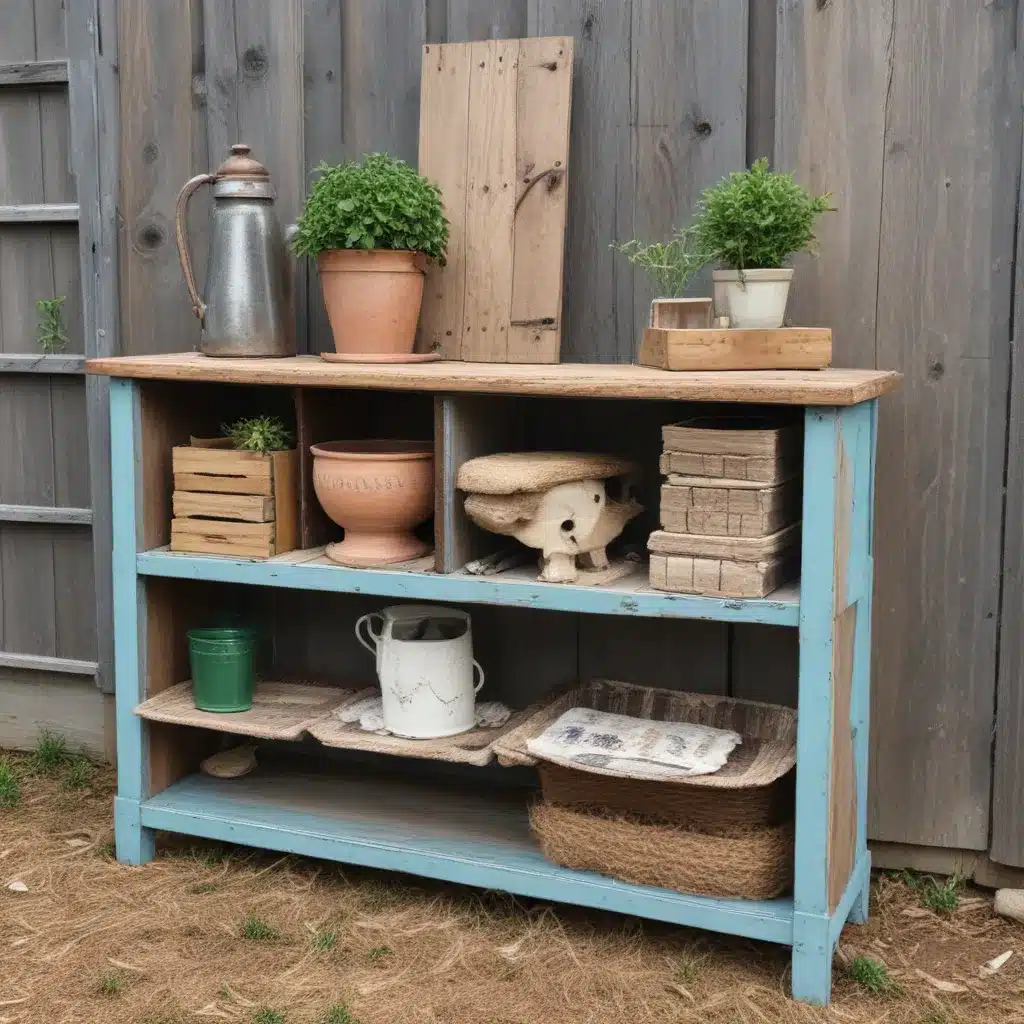
As a farm educator at Crooked Pines Farm, I’m excited to share how we’ve embraced sustainable practices through repurposing and upcycling. Here at our farm, we firmly believe in reducing waste, minimizing our environmental impact, and finding innovative ways to breathe new life into everyday items.
Sustainable Farming Practices
Repurposing Materials on the Farm
Farms generate a significant amount of waste, from worn-out equipment to excess organic matter. Rather than discarding these items, we’ve discovered numerous creative ways to repurpose them on our land. For example, old wind turbine blades, which are notoriously difficult to recycle due to their composite materials, have found new purpose as structural elements in our farm buildings and infrastructure.1 These massive blades make for excellent noise barriers, pedestrian bridges, and even glamping pods.
Upcycled Items for Agricultural Use
Across our fields and gardens, we utilize a variety of repurposed items to support our farming operations. Retired tires, once destined for the landfill, now serve as raised planters for our vegetable crops, providing excellent drainage and a unique aesthetic.2 Salvaged lumber from deconstructed barns has been transformed into custom trellises, offering vertical support for our climbing plants. Even everyday household items like buckets and crates have found new life as innovative growing containers for herbs and flowers.
Innovative Ways to Reduce Waste
Composting is a cornerstone of our sustainable practices, and we’ve discovered numerous ways to upcycle our organic waste. Vermicomposting, the process of using worms to break down food scraps and yard debris, allows us to create nutrient-rich soil amendments for our gardens.3 We’ve also repurposed old 55-gallon drums as large-scale composting systems, making it easy to turn and aerate the materials. By embracing these waste-reducing strategies, we’re able to minimize our reliance on synthetic fertilizers and support the long-term health of our land.
Repurposed Structures and Enclosures
Transformed Sheds and Barns
One of the most impressive examples of repurposing on our farm is the transformation of our old sheds and barns. Rather than demolishing these structures, we’ve meticulously deconstructed and repurposed the materials to create new, functional spaces. An abandoned dairy barn, for instance, now serves as a bustling farm-to-table kitchen and event space, where we host cooking classes and community gatherings. The weathered wood and rustic charm of these repurposed buildings add an irresistible character to our farm.
Upcycled Fencing and Trellises
Fencing and trellises are essential components of any farm, and we’ve found creative ways to incorporate repurposed materials into these structures. Old chain-link fencing has been woven together to create unique, decorative garden trellises that support our climbing vegetables and vines. Discarded metal rods and pipes have been transformed into sturdy tomato cages and bean teepees, providing vertical growing space without the need for expensive, store-bought options.
Innovative Livestock Shelters
The well-being of our animals is a top priority, and we’ve designed innovative shelters using upcycled materials. Retired shipping containers, for example, have been converted into cozy, weatherproof havens for our chickens and goats, providing them with protection from the elements while reducing our need for traditional structures.
Reclaimed Furniture and Decor
Repurposed Tables and Chairs
Beyond the practical applications, we’ve also embraced repurposing in the design and decoration of our farm. Vintage tables and chairs, salvaged from local flea markets and estate sales, have been refurbished and repurposed as unique seating areas and gathering spaces throughout our property. The juxtaposition of these weathered, one-of-a-kind pieces against the natural backdrop of the farm creates a warm, inviting atmosphere.
Upcycled Storage Solutions
Storage is a constant challenge on any farm, but we’ve found creative ways to address this need through repurposing. Discarded dressers, armoires, and chests have been transformed into custom-fitted storage units for our farm tools, seeds, and other supplies. These upcycled pieces not only provide practical storage solutions but also add a touch of rustic charm to our farm buildings.
Innovative Home Accents
Even our farmhouse interiors have benefited from the integration of repurposed materials. Reclaimed wood, salvaged from old barns and fences, has been crafted into stunning headboards, shelving units, and art pieces that adorn the walls of our living spaces. Discarded windows and doors have been repurposed as unique photo frames, mirrors, and decorative elements, adding character and individuality to our home.
Creative Planting Containers
Transformed Tires and Buckets
When it comes to our gardens and greenhouses, we’ve found countless ways to incorporate repurposed containers. Retired tires, once bound for the recycling center, have become vibrant, eye-catching planters for our vegetable crops and ornamental plants. Upcycled buckets, drums, and crates also serve as innovative growing spaces, allowing us to expand our planting areas and add visual interest to our outdoor spaces.
Upcycled Planters and Troughs
Beyond traditional containers, we’ve also discovered unique ways to transform other everyday items into stunning planting vessels. Salvaged sinks, bathtubs, and even old canoes have been repurposed as one-of-a-kind planters, adding a touch of whimsy and personality to our gardens. These upcycled pieces not only serve a practical purpose but also showcase our commitment to sustainability and creativity.
Innovative Vertical Gardening
Space is often at a premium on our farm, so we’ve embraced vertical gardening techniques using repurposed materials. Discarded ladders, for instance, have been transformed into tiered planting stands, allowing us to grow a variety of herbs, greens, and small-scale vegetables in a compact footprint. Stacked pallets, another common farm waste item, have been converted into living walls that burst with a vibrant array of flowering plants and trailing vines.
At Crooked Pines Farm, we firmly believe that sustainability and creativity go hand in hand. By embracing the power of repurposing and upcycling, we’re not only reducing our environmental impact but also cultivating a unique, one-of-a-kind farm experience for our visitors. From transformed structures to innovative planting containers, our commitment to sustainable practices is woven throughout every aspect of our operations. We invite you to explore our farm, discover the stories behind these repurposed wonders, and be inspired to incorporate your own sustainable ideas into your daily life.


